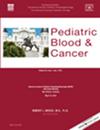Parent and Participant Perspectives on Research Biopsies in Pediatric Solid Malignancies
Abstract
Purpose
Federal agencies recently released draft recommendations for research biopsies with special considerations for children. Little is known about parent or patient perspectives on research biopsy practices. The purpose of this study was to quantify acceptance or non-acceptance of a research biopsy, to explore the decisional reasons, and to measure post-procedure decisional congruence or regret.
Patients and Methods
Participants aged 2–21 years diagnosed with a recurrent or progressive solid tumor amenable to biopsy (based on safety review team) were eligible. This paper reports findings from a pre- and post-questionnaire to describe their acceptance or non-acceptance of the research biopsy procedure.
Results
All approached candidates agreed to participate (n = 8). Reasons for participation in the research biopsy included altruism, personal benefit, convenience of a concurrent procedure, and diagnostic goals. The average distress score for the research biopsy pre-procedure was 2.4 (1 = not distressed, 5 = very distressed). Participants endorsed a high level of decisional congruence and a low level of regret post-biopsy using a validated Decisional Regret Instrument. Participants reported that the biopsy was the right decision (average 4.3/5-point scale) and they would choose the same again (average 4.3/5). Participants reported low regret (average 1.7/5) and low perception of harm associated with the research biopsy decision (average 1.3/5).
Conclusions
Parents may consider research biopsies acceptable under certain circumstances and may maintain decisional congruence post-procedure. National guidelines and ethical considerations can help navigate the complexities of research biopsies in children. Best practice-informed consent processes are necessary due to the existence of therapeutic misconceptions.


 求助内容:
求助内容: 应助结果提醒方式:
应助结果提醒方式:


